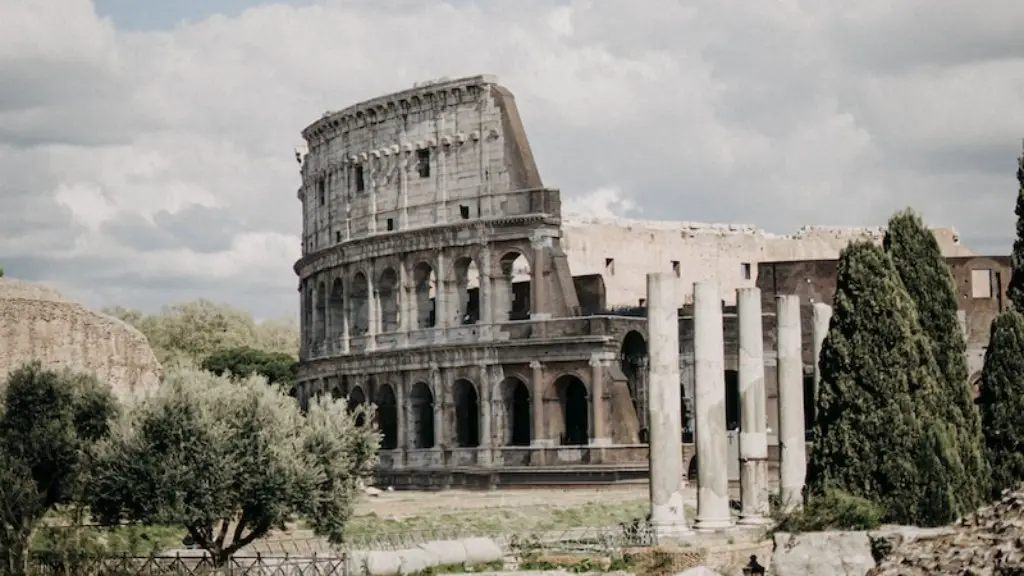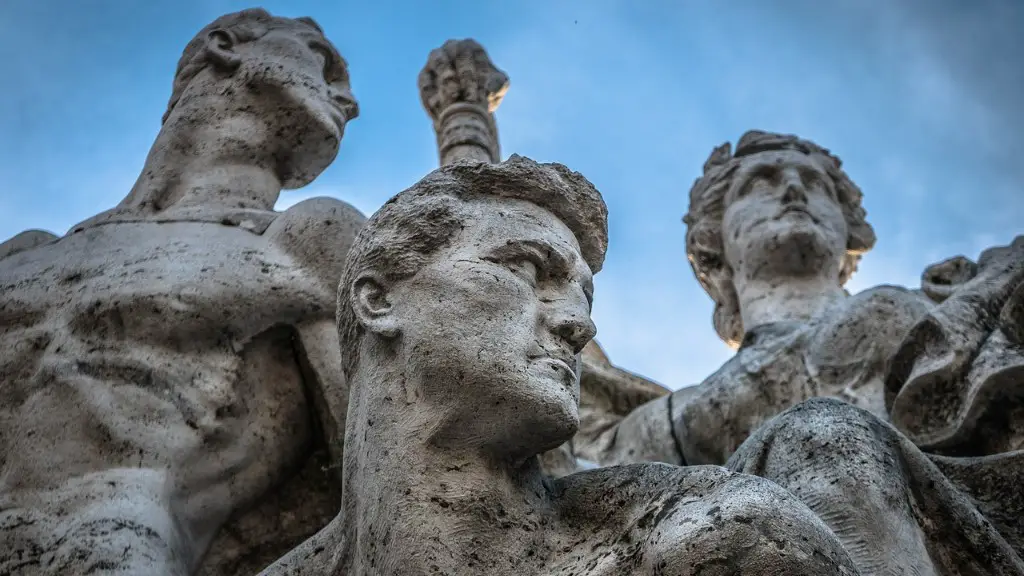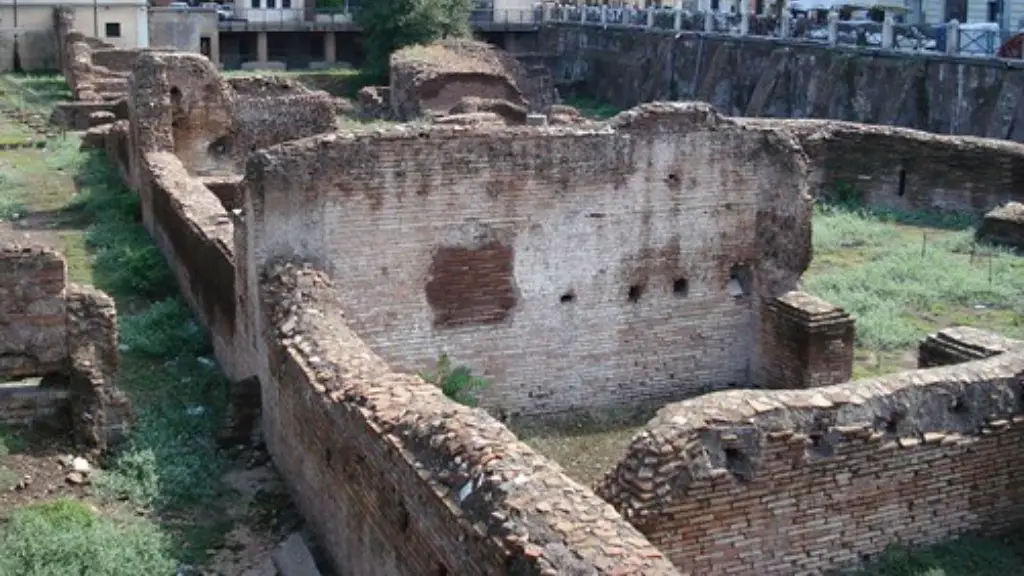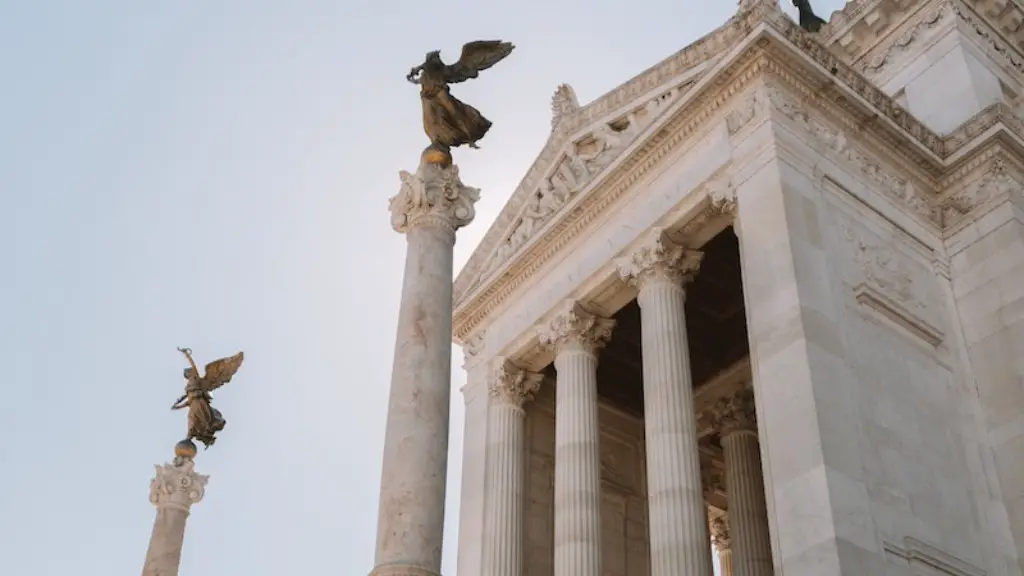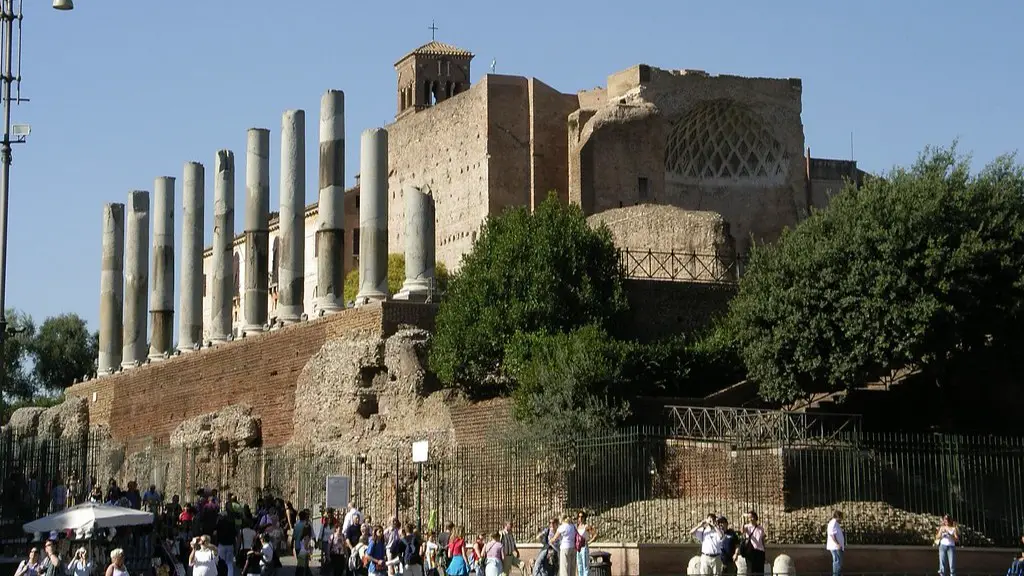Who Formed The First Triumvirate in Ancient Rome?
The ancient RomanTriumvirate was a powerful alliance between three of Rome’s most powerful leaders, which helped the country’s rise to become a great empire. The Free Dictionary defines a triumvirate as “a coalition of three persons or parties for joint action, especially in politics”. The man credited with creating the first Triumvirate in Rome is Julius Caesar.
It is thought that Caesar set up the Triumvirate in 60 BC along with Crassus, who was one of the richest men in Rome, and Pompey. The Triumvirate was thought to be an unofficial group of individuals who were determined to take control of Rome’s politics and government, which had for centuries been the domain of the Senate.
Caesar, Crassus and Pompey each held a great deal of power, both politically and militarily, and so formed a very effective alliance. Through the Triumvirate, they were in a position to use their collective power to gain more influence in Rome. They were able to pass laws, appoint officials and make decisions without consulting the Senate.
The alliance between the three lasted for a few years, and they were successful in their aims. However, the alliance was eventually broken when Crassus was killed in battle, leaving Julius Caesar and Pompey to vie for control of Rome. This led to a civil war, and ultimately to the fall of the Roman Republic.
The Triumvirate and the actions of Julius Caesar, Crassus and Pompey are seen as a defining moment in Roman history. It marked the fall of the Republic and the rise of the Roman Empire. This change in power structure was not only significant for Rome, but for the entire Mediterranean region, as it ushered in an era of Roman rule that was to last more than 500 years.
Did the Triumvirate Actively Participate in Government?
The Triumvirate is often seen as an alternative to the Senate and its role in Roman politics. However, it is important to note that the three members of the Triumvirate did not actively seek to overthrow the Senate; rather, they sought to use their collective power to influence decision-making. This influence was evident in the laws they passed, the officials they appointed, and the decisions they made.
The Triumvirate was not a formal organization, and did not have an elaborate structure. Rather, it was an informal grouping of individuals with a common goal. Furthermore, it is important to note that the actions of the Triumvirate were not always popular with the Roman people. Their actions were seen as a power grab, and many in Rome were against the idea of three individuals being able to wield so much power.
Despite this opposition, however, the Triumvirate was successful in achieving its goals. Through their influence, they were able to make significant changes in the way Rome was governed. They passed laws, appointed officials, and made decisions that had a lasting effect on Roman history.
The Triumvirate’s actions are seen as a crucial moment in Roman history. It marked the transition from a republic to an empire, and its success can be seen in the five hundred years that Rome was able to maintain its status as a powerful state.
What Was the Fate of the Three Members of the Triumvirate?
The three members of the triumvirate each had different destinies. Julius Caesar was assassinated in 44 BC by a group of senators. Crassus was killed in battle in 53 BC. Although Pompey initially escaped the onslaught of the civil war, he was eventually killed in Egypt in 48 BC.
The death of the three members of the triumvirate marked the end of an era. The death of Julius Caesar brought an end to the Roman Republic, and ushered in a period of rule by the Roman Empire. The death of Crassus, one of the wealthiest men in Rome, brought an end to a period of significant economic power. The death of Pompey, a military leader, brought an end to a period of strong military power.
The legacy of the three members of the triumvirate has endured for centuries. Caesar is often seen as one of the greatest commanders in history, and Crassus and Pompey are still remembered for their contributions to Roman history. Although their period of rule was short-lived, the impact of their actions on the Roman Empire was immense.
What Legacy Did the Triumvirate Leave?
The Triumvirate is one of the most famous alliances in history. It was an alliance between three powerful leaders of Rome, and marked the transition from a republic to an empire. Its legacy is one of influence and power, as its members were able to wield significant power and influence over decision-making in Rome.
The three members of the Triumvirate left a lasting legacy in Roman history. Julius Caesar is often seen as one of the greatest military commanders in history, and his influence is still felt today. Crassus and Pompey are also remembered for their significant contributions to Roman history. The impact of their actions on the Roman Empire was immense.
The legacy of the Triumvirate has also been felt in modern politics. Its example has been followed by powerful leaders throughout the centuries, and its legacy still resonates today. The example of the Triumvirate is a reminder of the power of alliances and the potential of their members to wield significant power and influence.
What Was the Significance of the Trappings of Power?
The three members of the Triumvirate were powerful men, and had access to a great deal of wealth and power. This enabled them to use the trappings of power, such as lavish banquets, elaborate palaces and grandiose processions, to help them maintain their position in the popularity of the people.
The use of the trappings of power was effective in helping them maintain their position. It ensured that the people of Rome were aware of their influence, and helped them to maintain a loyal following. Furthermore, it served as a reminder to other leaders of their power, and ensured that they would be treated with respect and deference.
The trappings of power can still be seen today. Powerful leaders throughout history have used symbols of power to maintain their influence, and to show that their authority should be taken seriously. As a reminder of the Triumvirate’s power, their example has been followed by leaders throughout the centuries.
How Have the Actions of the Triumvirate Influenced Modern Politics?
The actions of the Triumvirate have had a lasting impact on modern politics. Its example of an informal alliance of powerful individuals wielding significant power and influence has been followed by many powerful leaders throughout history, including modern-day leaders such as Vladimir Putin and Donald Trump.
The legacy of the Triumvirate is also felt in the way that politics is conducted today. Its influence can be seen in the importance of alliances, the importance of power and influence, and the use of symbols of power to maintain a loyal following. Its legacy is a reminder of the power of alliances and their potential to wield significant power.
The actions of the Triumvirate have had a profound impact on Roman and world history. It marked an important transition from a republic to an empire, and its legacy has been felt for centuries. Its example of an informal alliance of powerful individuals is still echoed today, and its influence can still be felt in the way that politics is conducted.
What Were the Long-Term Implications of the Triumvirate?
The Triumvirate had a significant impact on Roman and world history. Its legacy is still felt today, and its influence can still be seen in the way that politics is conducted. The long-term implications of its actions can be seen in the five hundred years that the Roman Empire lasted and the lasting influence it had on the Mediterranean region.
The legacy of the Triumvirate is also evident in the way that alliances between powerful individuals are still being formed today, and in the way that power and influence are still being wielded. Its example of an informal alliance is still echoed today, and its legacy is a reminder of the power of such an alliance.
The Triumvirate was a crucial moment in Roman history, and its legacy has had a lasting impact on the world. Its example of an informal alliance of powerful individuals has been followed by many powerful leaders throughout the centuries, and its influence is still felt today.

